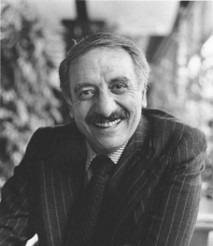Adul Rahman Ghassemlou is a Kurdish leader born on December 1930 and assassinated on July 13, 1989, in Vienna by the Islamic Republic of Iran. Like many Kurds, Ghassemlou’s story began in the mountains. He was born and raised in an upper-class Kurdish household in Iran and after university took up armed resistance with the Kurdistan Democratic Party in Iran (KDPI). He had co founded the youth wing of the organization at the age of 15 and was known for not only his leadership skills but also his intelligence. He spoke many languages and was a student at the internationally ranked Sorbonne.
Upon his return to Pahlavi controlled Iran, Ghassemlou joined the fighting ranks of the PDKI and became a political leader. He was elected to be the ruling member of the organization for three terms and is revered in Kurdish political discourse. Despite supporting the 1979 revolution, he and the PDKI were ostracized by the Irani public and government. In fact, he was refused entry into a body responsible for the structuring of the Constitution even though his appointment to that body was through popular vote as a regional delegate.
It was not long before the PDKI renewed its conflict with the Iranian government, only this time under the regime of the Islamic Republic. Attempted peace deals led to a meeting in Vienna between Iranian and Kurdish officials. Though meetings seemed to go well at first, they ended with the majority of the Kurdish delegation being shot at close range on July 13, 1989. Suspected members of the Iranian delegation fled the country back to Iran or sought refuge in the embassy. The Austrian government mounted a full-scale investigation and issued arrest warrants that have yet to be executed on.

